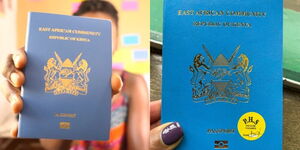Treasury Cabinet Secretary Ukur Yattani has allayed Kenyan fears that the tax measures announced by President Uhuru Kenyatta to counter the economic effects of the COVID-19 pandemic are short term.
In a report by the Business Daily on Tuesday, March 31, the CS announced that the tax measures had been put in place to jumpstart economic growth and were here to stay.
Yattani differed with analysts who opined that the measures, supposed to take effect on April 1, 2020, would only last until the start of the next financial year in July 2021.
"Those measures are permanent and will be forwarded to the National Assembly before the close of business on Monday," the CS was quoted.
On March 25, 2020, President Kenyatta announced an economic stimulus package to shield the economy from the effects of the COVID-19 pandemic.
In one of the measures, the president ordered the National Treasury to give employees earning less than Ksh24,000 a 100% tax relief.
The impact of this directive is that that if a worker earns Ksh24,000 and less, then they would get a full salary without the Pay As You Earn (Paye) deductions from April 1, 2020.
The proposals are set to be deliberated on when Parliament reconvenes.
Once the measures come into place, Kenyans earning less than Ksh24,000 will have an extra Ksh1000-Ksh1400 as a result of the waiving of tax on their pay.
For workers earning more than Ksh47,000, the lowering of the maximum income tax rate from 30-25 percent will also go a long way in increasing their disposable income.
For those earning Ksh50,000, there will be an extra Ksh4,241 per month, extra Ksh7,229 for those earning up to Ksh100,000 and Ksh9,717 for those earning over Ksh150,000.
Employees earning Ksh500,000 will be able to receive Ksh27,229 as relief and those with Ksh1 million pay would be entitled to an extra Ksh52,229, a 7% increase in income.
Among the measures pending approval also include the lowering of the turnover tax (ToT) for small and medium enterprises (SMEs) from 3% to 1% to lessen the strain on the businesses.












